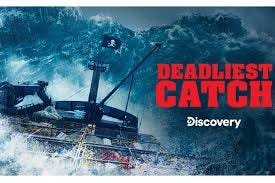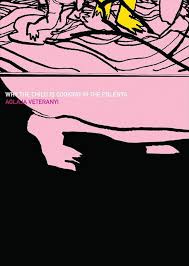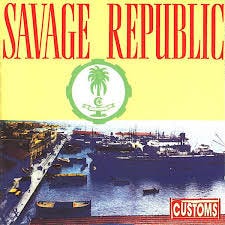For those about to gaze into the abyss, I salute you
I have heard that deep sea crab fishing is the world’s most dangerous job, and I can believe it. Slippery decks, rough seas, equipment, noise, and a venture that may prove profitable or doomed depending on the whims of nature. Davy Jones’ Locker.
Interestingly, another dangerous job profession, believe it or not, is philosophy. While I don’t think the number of fatalities is anywhere near physically-dangerous jobs, and the two jobs are so different as to invite a fallacy of false comparison, philosophy seizes lives, too. Notably, via suicide.
Philosophy, if you are able to do it professionally — and keep in mind that David Hume, Descartes, and other giants of the field were not — is of course not a physically-demanding job. Teaching has gotten increasingly more absurd as educational history grinds on, with some teachers leaving the field due to technology taking over (there’s a beautiful essay about this from a female teacher whose name escapes me), burn-out, fears for safety, or not getting in line with the Woke Virus and its attendant conformity.
I’m thinking of a few particular folks, with a seeming small blip upward more recently in philosopher suicide rates, that of Mark Fisher and Bernard Stiegler. Historically, we know that Nietzsche suffered from physical problems (vision problems, indigestion, migraines, and speculation about venereal disease, stroke, and mental collapse). In my last post I wrote about “cosmic pushback” to intellectual and especially scientific progress, which the dark comedy novel Definitely Maybe explores the idea of. A movie I saw about Nietzsche showed him losing his mind from migraines and suicidal at one or more points. Perhaps, as the joke goes, God killed Nietzsche for Nietzsche’s claim of being the notary public to God’s death. God killed Nietzsche slow.
My favorite writer, Harry Crews, who grew up a dirtpoor sharecropper’s son in south Georgia, was the first of his family to attend college and even more amazingly become a professor. He battled substance abuse and alcoholism, and his biographer Ted Geltner, a friend of mine and southern gentleman, found in his research a time when someone discovered Harry, despondent, simply holding a shotgun sitting on a bed, and diffused the situation. Crews later attempted suicide later in life with a hunting knife and somehow missed all of his internal organs; he lied about the incident, to boot. He died eventually of natural causes. It shows you can overcome poverty and social class low expectations, have an amazing and diverse life, be successful (in writing and teaching), and still be dissatisfied with the ride of life. Crews wrote later in his life about his “black twirlies” of depression and generalized anxiety.
We know that the literary world can seem full of brilliant but troubled people, and I’d add to this list Hunter S Thompson, who died by gunshot suicide in his 60s. He still receives posthumous anger and shock for having done the deed while on the phone with his wife, and with his grandchild in the house in another room. And we all know Hemingway, who woke up one morning in Ketchum, Idaho, ate breakfast, and put a sawed-off shotgun to his head. You can live an incredible life of adventure like Hemingway, be successful at your passion, win the big prizes, and still end up slumped over from a self-inflicted wound next to your orange juice.
I did not discover Mark Fisher, student of Nick Land, until after Mark’s passing from suicide; Mark wrote about his depression in addition to loftier/more cerebral topics. Bernard Stiegler’s suicide gave me a bit of a gut punch, because I’d discovered him via the excellent Echographies of Television and really loved his true life story of going from bank robber (!) to philosopher. I was surprised Stiegler went out like that.
What these folks have in common, from philosophy to grit lit to gonzo journalism, was that they all boldly looked at the abyss of life, and it unfortunately gazed back hard at them as well. Fisher argued that we can’t keep treating the depressed and suicidal as broken parts of an otherwise robust and healthy machinery of society who only have something wrong with them. He reminded us people are products of their environment and maybe, just maybe, there was something askew with society.
My father likes to measure the world, being the son of an accountant, and believes that Hemingway’s death was wholly preventable if his iron imbalance had been treated, but I disagreed with him and shared with him Crews’ psychological take on Hemingway’s final days. Crews took in a bigger holistic picture and shared insight, as a fellow wild man adventurer/writer, that went beyond just blood test levels and health conjectures, and I think Crews got in Hemingway’s head, as much as that is possible.
When I first began in philosophy it was wholly exciting: the goofy Orange County community college professors, and then what felt like the bigger leagues with professors when I went off to finish my BA. Nietzsche had been wholly dismissed by an analytical community college prof but at Sonoma State University there was a Nietzsche specialist/fanatic. But professional philosophy is different from those who peer into life’s underbelly on their own; I have done a combination of both, and it takes a toll.
I don’t mean to create such a male-heavy list; I recently read Why the Child is Cooking in the Polenta by Aglaja Veteranyi, who drowned herself in Lake Geneva. Her book is an imaginative and vivid memoir of growing up in a Romanian gypsy traveling carnival family in the 20th century.
Life is hard enough, but when you willingly really look at it closely, it can be a gruesome and unsettling experience, like a disturbing dream, movie, or event in life that gets under your skin and recalibrates your mind.
My father mentioned earlier is a rational, prudent, and safety-seeking man; I realized at a point in my life that I was drawn to people who’d lived wider, fuller lives at the expense of longer, safer ones. I grew up very innocently and managed to be innocent, in certain ways, long into adulthood. But at a certain point I realized that what I was seeking was not out there in the world or in some privileged sage’s words, but right in front of me, the world itself and myself.
I was diagnosed with dysthymia — a kind of low level, constant, humming depression that colors all I experience — early in life, as well as generalized anxiety disorder (which it turns out is not so much a disorder as common state in the early 21st century). These dual long black clouds, in addition to bouts of depression that were situational or purely out of the blue, have always been there. Did I have what the psychologists call an Acute Childhood Experience? Sure, a violent and haunting one. I think many people do. Did I wrestle with self-medication and anger for awhile? Sure. Again, I think most people do on some level.
I’m curious as to what kind of thinkers and deep-goers are going to emerge in the 21st century as life becomes more and more dystopic. While the 20th century was a bloody one, the 21st has put us in a tech-embraced dystopia that seems to be heading toward what Zizek calls “soft fascism,” rising up all over the world in response to the failures of Leftist and progressivism. In the Cold War, we grew up with the threat of one big life-altering catastrophe (WW3), but what we’re seeing now is smaller catastrophes, a hardening and nasty-izing of the populace, who are terrorized and confused and just trying to survive. I did what I had to do, Savage Republic sing on “Sucker Punch,” it was either him or me. The age of necropolitics has arrived, the age of accelerationism. The dystopic future once only visualized in postap movies or dark orbs of prophecy is now everyday reality. It is, as always, different than we thought it’d be. The world, as Heidegger said, is darkening.
The unexamined life is not worth living, Socrates told us, via Plato. We know that Socrates met a similar fate as Jesus, charged with the same thing (corrupting the youth/disturbing the peace), if less spiritually-charged and less bloody, but no less tragic. He went relatively peacefully, obeying the will of the people but commenting on how it was pretty absurd to put a man to death for asking questions and thinking about life, thinking for himself.
So what to do? In 51 years of rollercoaster living and ups and downs, twists and turns, some success and even greater failures, I continually return to Marcus Aurelius, who said you have to look at life for what it is — don’t look away — but, also, dont be troubled by what you see when you take a good, brave gander.
Easier said than done.






